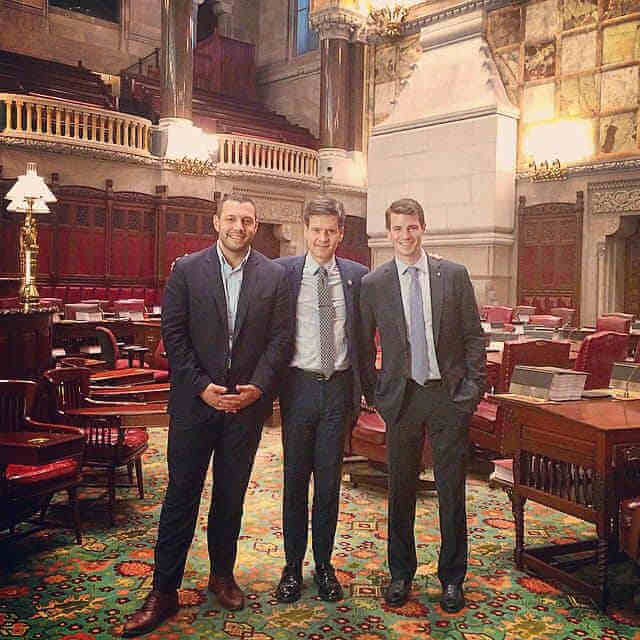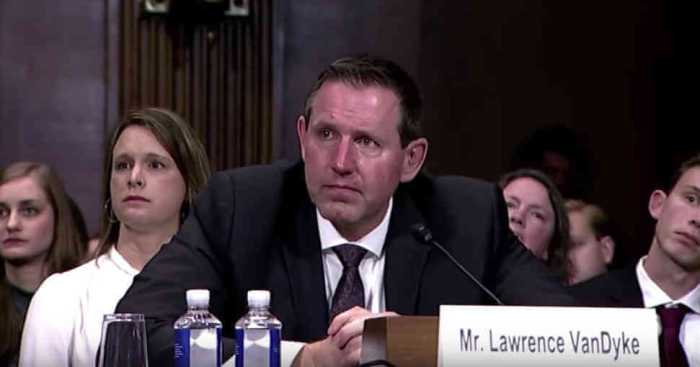A federal magistrate has recommended that the US District Court for the Middle District of Florida issue a limited preliminary injunction barring the city of Tampa from enforcing an ordinance banning licensed health care professionals from performing conversion therapy on minors.
In a January 30 report, Magistrate Judge Amanda Arnold Sansone concluded that the plaintiffs challenging the ordinance are likely to prevail, based on the First Amendment’s free speech guarantee, regarding the type of therapy they claim to provide — non-coercive, consensual “talk therapy.” The plaintiffs disavow electro-shock or other aversion therapy methods.
Sansone found that failure to enjoin the ordinance would cause irreparable injury to the plaintiffs by restraining their freedom of speech.
The plaintiffs in Vazzo v. City of Tampa are represented by Liberty Counsel, a right-wing Christian advocacy law firm.
The plaintiffs are Robert L. Vazzo, a Florida-licensed marriage and family therapist, David Pickup, who holds a similar license from California, where his conversion therapy practice has been prohibited, and who aims to become licensed in Florida, and New Hearts Outreach Tampa Bay, a Christian organization that refers people to licensed therapists for conversion therapy.
Equality Florida, the state’s LGBTQ rights advocacy group, sought to intervene in defense of the Tampa ordinance, but that was rejected by Sansone and District Judge Charlene Edwards Honeywell, so it is participating through an amicus brief.
Sansone’s recommendation for injunctive relief flies in the face of rulings by the Philadelphia-based Third Circuit Court of Appeals and the San Francisco-based Ninth Circuit, which rejected First Amendment challenges to similar state laws in New Jersey and California. Pickup, one of the plaintiffs in the Tampa case, unsuccessfully pursued the challenge to the California conversion therapy ban. The court there found that the statute was primarily a regulation of conduct by health care providers, which only incidentally affected professional speech. The state’s interest in protecting minors from the well-documented harmful effects of conversion therapy was sufficient to sustain the law.
The Third Circuit took a different approached from the Ninth, deciding that the New Jersey ban was a content-based regulation of speech, but that it was “professional speech” within a regulated profession — health care — and so was subject only to heightened scrutiny, not strict scrutiny. The Third Circuit found that New Jersey’s substantial interest in protecting its citizens from harmful professional practices outweighed the free speech interests of the plaintiffs.
Both cases were denied review by the US Supreme Court.
Sansone acknowledged both of these 2014 appellate rulings, but put greater weight on two more recent cases. In 2017, the 11th Circuit, which has jurisdiction over Florida federal courts, found that Florida’s law prohibiting doctors from asking their patients whether they had firearms in their homes was a content-based regulation of speech that fell short in heightened scrutiny review. Sansone also looked to a 2018 US Supreme Court ruling that a California law requiring “pregnancy centers” to inform their patients that free or low-cost abortions are available from the state government was unconstitutional as a form of compelled speech. California tried unsuccessfully to defend that law using the same logic that prevailed regarding its conversion therapy ban: that the statute was a regulation of health care practice, only incidentally affecting professional speech.
That case, Sansone wrote, “expressly rejected the analyses” in the two conversion therapy appellate rulings that “professional speech” is “a separate category of speech subject to differing constitutional analysis.”
From there, however, Sansone did something that the Supreme Court did not: she concluded that the Tampa ordinance is, at least as applied to “talk therapy,” a content-based regulation of speech that should be subject to strict scrutiny, a standard the high court did not apply in the California abortion notification case.
Applying strict scrutiny, she found the plaintiffs were likely to succeed on the merits, at least regarding talk therapy that is non-coercive and consensual. Even though Sansone found that the ordinance serves a compelling governmental interest in protecting the well-being of minors, in a strict scrutiny case, a content-based law has to be “narrowly tailored to serve” that compelling interest.
“The court will not assume plausible alternatives will fail to protect a compelling interest,” she continued, finding nothing in the legislative record to suggest it was enacted as “the least restrictive means” to achieve the government’s purpose.
The plaintiffs, Sansone found, were likely to prevail on their argument that an across-the-board ban on any kind of conversion therapy was unduly broad — a finding that gives credence to the plaintiffs’ suggestion that Tampa could accomplish its goals by banning only aversion therapy while allowing talk therapy with informed consent from minors and their parents.
Without explaining why, Sansone appeared to accept the plaintiffs’ argument that “talk therapy” seeking to change sexual orientation is not harmful to minors, a point that the city and Equality Florida will sharply contest in a trial on the merits of this case. The contention that there is meaningful consent by minors who may be compelled by their parents to submit to conversion therapy is also contestable.
Sansone also found that plaintiffs are likely to prevail on their claim that the ordinance is a form of viewpoint discrimination and is overbroad. Once again, she appears to buy into the plaintiffs’ contentions that “talk therapy” is not a waste of the patient’s time as well as potentially harmful. (Tellingly, she does not discuss the 2015 JONAH case, in which a New Jersey trial court found that conversion therapy practitioners’ representations that they are able to change people’s sexual orientation are a form of consumer fraud.)
Sansone found that any restraint on protected speech causes irreparable harm to the plaintiffs that outweighs any harm to the city of Tampa, which she said focused instead, along with Equality Florida, on the potential harm to non-defendants — namely, the minors subjected to conversion therapy. Her balancing of interests, here, overlooks government’s traditional role as a protector of the health and welfare of minors under the parens patriae doctrine.
Sansone recommended that the injunction be narrowly focused on protecting the practice of “non-coercive talk therapy,” and that the city be allowed to enforce its ordinance against therapy that is coercive or goes beyond talk.
Sansone’s report is only a recommendation to the district court. The city of Tampa will have an opportunity to contest this recommendation when it is presented to the district judge.



































